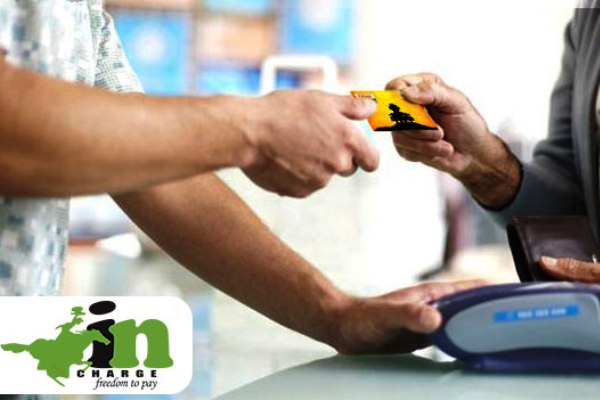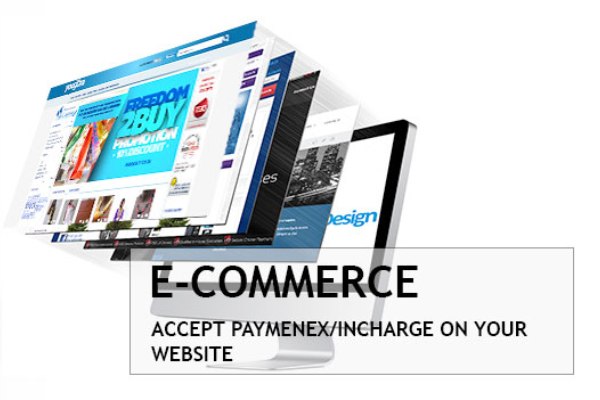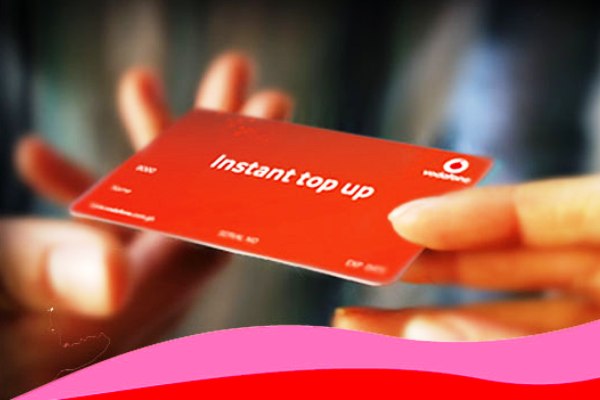InCharge Global: Electronic Payment Solutions Company in Ghana
Sheila Penelope Bartels-Sam gives her assessment on the IT sector in Ghana. She also presents her company, InCharge Global, and talks about some of the solutions she has implemented in various areas, such as oil, entertainment and telecom.
Interview with Sheila Penelope Bartels-Sam, CEO of InCharge Global
Let’s talk about the IT sector and the sector you work in. What is your current assessment?
By next year our company is going to have about 25,000 outlets throughout the country in Ghana. In the next five years, we are going to have at least six countries that we are partnering with because we have already started that project.
I think it is very exciting right now. There is so much growth. Last week we attended an event for the top applications that had been developed during the year and I was amazed because I saw about 25 new applications that were nominated that did not come up last year. It means a lot more young people are working but then there is no channel for them to be able to really push their products out there to make it international, unlike people elsewhere who have the opportunity to push their products into the international market. There’s a really big gap there even though there is so much that is being done. I think that the IT industry here is growing and is doing very well locally.
What do you think can be done to channel that?
There is no support financially for most of these people to build up. A typical Ghanaian company does not want to pay the value of the solution that you have developed so when they come up with these things, they believe the best market is to look out there but how do they go out there? How do they get people to be attracted to what has been done locally? I have seen solutions that are bigger than those that are out there, but how do they get out there? There is no mechanism. It is very complex.
You came to the market with something new. You had experience in the US and when you came here, you noticed a big gap in the market.
I am in the business of developing payment tools focused on mobile and then focused on loyalty. What I realized is that the typical solution that is currently on the market is targeting bank customers. So when I came in, it was banks issuing debit cards for their customers and they couldn’t even do anything with those cards except to take money out of an ATM machine. I said to myself that it would be good to actually look at something that was targeting the actual payment. I approached one company to develop something for them for fuel and that was my first client. I seemed to never have failed in looking for business, which is good for me because I take my time to actually understand what the issues are with any particular customer before I come up with a suggestion for a solution. I have done so well so far in developing various products across different industries. I have done programs for the oil sector, a lot of entertainment business, and something for the telecom sector. I am now doing something in banking and we have a few others in the pipeline that we are still developing for various clients.

Can you describe in each of these sectors what you do and give us an example of the specific companies that you work with?
The very first product I developed was the GOIL advantage card. GOIL is the Ghana-owned fuel company and they were using fuel coupons; they still do. But I came across a problem that they had in that they had several companies they were supporting across the country and several government offices across the country. They had huge fleets of vehicles and sometimes when they were traveling they had problems issuing coupons when the person was short on the road and then sometimes at the end of the month the accounts office would be flooded with people coming for their coupons and people would trade coupons for cash. They had several issues. So we looked at how we could put that into a program so that somebody takes a card one time and then they are able to always use it while there is just one central person who just sits in an office with a PC and is able to allocate fuel at any point in time. That was our first project and we did that from 2008 all the way until April of 2013. My first learning experience was great.
In the entertainment business, we did quite a few things because we wanted publicity for the things we were doing. With entertainment, everybody sometimes goes out to enjoy themselves. We started developing swipe cards and ID cards and tools for passes for entertainment gate entry. We did that and of course we were selective of companies who had a huge following and who had big events like Multimedia Group and Charterhouse. We’ve done quite a number of things for them over the years and we still do.
Our biggest project is the Vodafone swipe card. We developed that and it went live in September 2012. It is doing very well. The swipe card is actually a payment tool in addition to a loyalty card and what it does is it enables people to use their mobile phone. You just activate it by dialing *143 and your serial number and all of a sudden it creates an e-wallet on your mobile phone. With that e-wallet, you can load it with funds and you can pay for anything that Vodafone enables you to pay for. You can pay Vodafone bills, buy your airtime instantly from your account, pay any merchants that are associated with Vodafone, and you can also use it on Point of Sale terminals in shops. It opens up a whole new array of opportunities for users who are already on Vodafone and at the same time, what it does is it calculates certain loyalty points for the people who use it. When you use the electronic channels, then Vodafone rewards you for using it so that people will be encouraged to go electronic rather than going the manual way.

How do you get your revenue?
Most of my clients pay a commission whenever we process a transaction. They either pay a commission or they pay transaction fees. We charge for card issuance and also for setting up the system.
The interesting thing is that it exists in other countries. Vodafone has that somewhere else. So why do they choose you to do this application?
First of all, I think I put up a good business case. I think that is more important than anything. Secondly, I’m quite good at building relationships because I take my time to actually understand what a company wants to do before I even put in a proposal. I talk to a lot of people, I make a lot of friends, and then I try to find out exactly what the challenge of the day is. Once I’m able to define what the challenges are across various departments in the company, then I make my proposal targeted at those problems. So everyone says we know we need it, go ahead. That is how I’m able to get my business. That’s my marketing secret.
What are the challenges you face?
My biggest challenge is being an African woman in technology and trying to get the big business. It is already very difficult being an entrepreneur in Africa because it has its own challenges like finance, growth, not having support, investment problems, staffing problems and all of that. So there are a lot of problems already lined up for anybody who wants to be an entrepreneur in Africa. Then you want to be in technology and the typical African company decision-maker does not trust an African solution. That is a problem because they believe the good solution should always come from somewhere else.
Then you are a woman so people think, how did you come up with that and can I trust you with a problem as big as this? People ask where is the man behind this. I have done several solutions for several companies and I believe I now have a track record. People come to me for solutions. But then we were sitting in a meeting in a conference and a discussion came up about a project which the minister of state though nobody had seen. Then he says, Sheila you should apply for that but go get a partner. I said, okay but why do I need a partner because I have the solutions and I have been doing it for years. But I should tell you it is very difficult for the typical African to trust a woman with anything. That is actually my biggest challenge.

As you mentioned, I think your reputation is already starting to be built and you are starting to be known and some of these hurdles will hopefully start to be less important. What about the company itself? How do you see the company growing five years from now?
I can tell you this for a fact. By next year our company is going to have about 25,000 outlets throughout the country in Ghana. In the next five years, we are going to have at least six countries that we are partnering with because we have already started that project. The typical challenge is the last mile – how to reach the end user with your solution. I’m talking specifically about banking solutions. We are looking at the typical African environment and how to create that network that makes it easy for any business to come in and then deploy their solution throughout the continent. We are doing very well. Within five years we see ourselves across Africa, at least in six countries. That is where we want to be. Our long-term plan is actually to be throughout Africa.
Are you looking for investors now or in the future?
Absolutely. We need investments because borrowing from the banks is very expensive for what we are doing. So far we are doing quite well in terms of internally generated funds being able to support our business operations but for the growth we do need some investments. We are working on putting things together and looking for a few heavy clients that will support that long-term goal.
So it’s not going to be an investor that will look at your solution and want to put money in it? It will be more a client that will bet on your solution and finance it?
We are looking at both. Yes there are clients that for us, our profile speaks when you have some clients like Vodafone and Ghana Oil and those kinds of companies. It helps investors to look at you and say, that’s a serious company. At the same time, there could be investors who would also pump in the money because they see where your company is going and we are looking at that as well. Most are strategic investors – people who first understand the African story. I’m not too interested in people who have a fixed way that things must be done because I have come across a few of those. It doesn’t work and we don’t want to collapse because somebody wants to do a copy and paste. If a company understands and they are willing to put in certain resources that will enable us to actually achieve the goal the way we also believe that it must be done, not in a very strict way, but for our mutual success that is what we are looking at. People who can bind to that dream.
What is your view on the development of Ghana?
Within Ghana, I see a lot of capital flight. I don’t see how the country is going to develop if we keep not trusting our local businesses. Everywhere I have been throughout the world, I see that governments are more interested in their local entrepreneurs and making sure they are empowered to do more. If it means taking your entrepreneurs to other countries to be trained and to be supported so that locally they can do the work that is required within the country, it makes the money stay in, it makes the knowledge stay in, and it lets the economy grow. But consistently we keep making that mistake of trusting the outside rather than trusting the inside. So on that level, I don’t think that the government of Ghana has done well over the years. I would not say one party; we have done it over and over again.